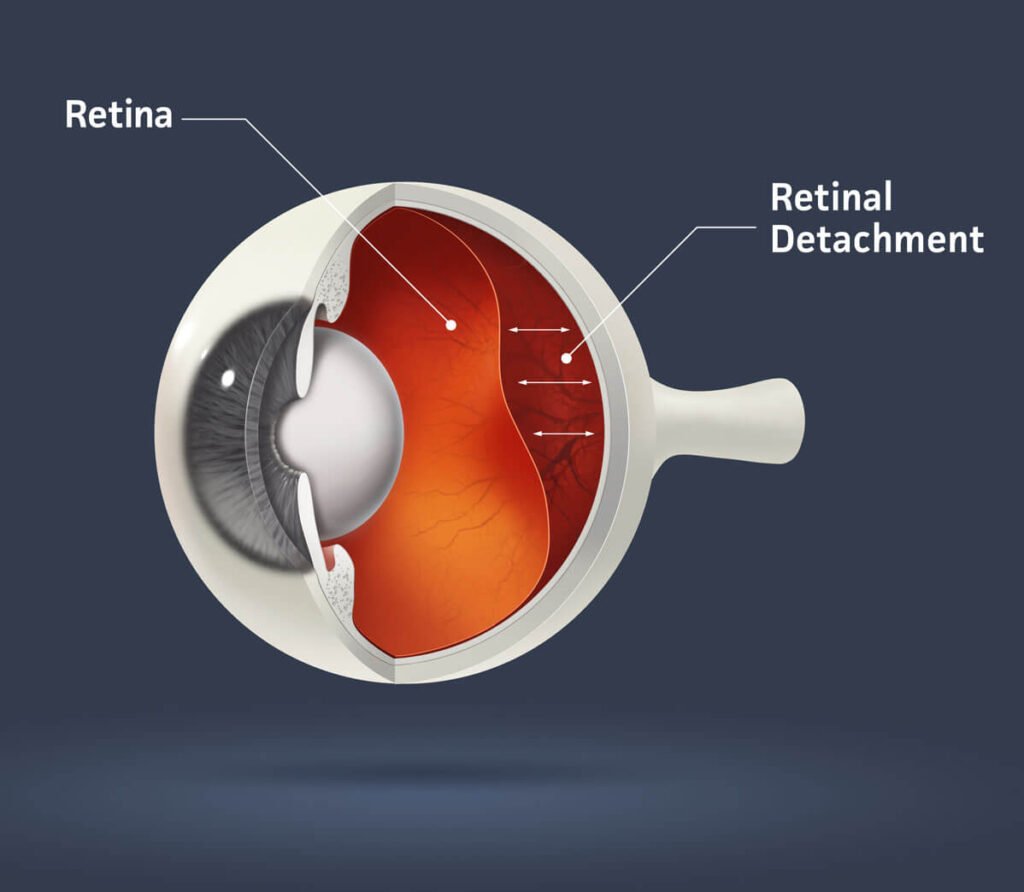The retina, a thin layer of tissue located at the back of the eye, plays a crucial role in our visual system. It captures light and converts it into electrical signals that are sent to the brain, allowing us to perceive the world around us. In this article, we will delve into the significance of retina evaluation, highlighting its role in maintaining healthy vision and emphasizing the importance of early detection and timely treatment of retinal conditions.
The Vital Component of the Visual System:
The retina acts as the essential interface between the external world and our vision. It contains specialized cells called photoreceptors that convert light into electrical signals. These signals are then transmitted through the optic nerve to the brain, where they are interpreted into the visual images we perceive. Understanding the importance of the retina as a vital component of the visual system is crucial in recognizing its significance in overall eye health.
Maintaining Healthy Vision through Retina Evaluation:
Retina evaluation involves a thorough examination of the retina to assess its health and detect any abnormalities. It allows eye care professionals to identify early signs of retinal conditions, such as age-related macular degeneration, diabetic retinopathy, retinal detachment, and more. Regular retina evaluation is essential for monitoring the health of this delicate tissue and ensuring optimal visual function.
Early Detection and Timely Treatment:
One of the key benefits of retina evaluation is the early detection of retinal conditions. Many retinal disorders may not exhibit noticeable symptoms in their initial stages, making comprehensive retina evaluation crucial for timely diagnosis. Detecting retinal abnormalities at an early stage enables prompt intervention and appropriate treatment options, significantly improving the chances of preserving vision and preventing further deterioration.
Early treatment of retinal conditions can help manage symptoms, slow disease progression, and prevent vision loss. Delaying evaluation and treatment can lead to irreversible damage to the retina and compromise visual function, underscoring the importance of regular retina evaluation to ensure timely intervention.
By understanding the vital role of the retina in our visual system and recognizing the significance of retina evaluation, we can prioritize our eye health and take proactive steps to maintain healthy vision. Regular retina evaluation, combined with early detection and timely treatment, plays a crucial role in preserving our precious gift of sight.
A Closer Look at its Anatomy and Function
The retina is a complex structure located at the back of the eye that plays a crucial role in visual processing. In this article, we will explore the anatomy and function of the retina, as well as how abnormalities in this delicate tissue can impact vision.
Structure and Layers of the Retina:
The retina consists of several layers, each with specific functions:
Photoreceptor layer: This layer contains specialized cells called rods and cones that capture light and convert it into electrical signals.
Bipolar cell layer: These cells receive signals from photoreceptors and transmit them to the ganglion cell layer.
Ganglion cell layer: Ganglion cells receive signals from bipolar cells and send them through their axons, forming the optic nerve.
Other layers: These include the horizontal cells, amacrine cells, and various supporting cells that contribute to retinal function.
Role of the Retina in Visual Processing:
The retina plays a vital role in visual processing, starting from the moment light enters the eye:
Light enters through the cornea and lens, reaching the retina where it is absorbed by photoreceptor cells.
Photoreceptors convert light into electrical signals, which are transmitted to bipolar cells. Bipolar cells process and refine the signals before passing them on to ganglion cells. Ganglion cells collect the signals, send them through their axons, and form the optic nerve, which carries visual information to the brain for interpretation.
Impact of Retinal Abnormalities on Vision:
Abnormalities in the retina can significantly affect vision:
Retinal detachment: When the retina detaches from its underlying layers, it can lead to vision loss in the affected area.
Age-related macular degeneration: This condition affects the central part of the retina (macula), leading to central vision loss.
Diabetic retinopathy: High blood sugar levels can damage the blood vessels in the retina, causing vision impairment or even blindness.
Retinal tears and holes: These can lead to retinal detachment if left untreated, resulting in vision loss.
Any abnormalities in the retina can disrupt the visual processing pathway, impacting the clarity and quality of vision. Regular retina evaluation is essential for detecting and managing these abnormalities, helping to preserve vision and maintain overall eye health.
By understanding the structure, function, and vulnerabilities of the retina, individuals can appreciate its critical role in visual processing and be proactive in seeking regular retina evaluations to ensure early detection and timely treatment of retinal abnormalities.
Dr. Kasture specializes in comprehensive retina evaluation, offering advanced diagnostic techniques to assess the health of the retina. With a deep understanding of retinal anatomy and function, Dr. Kasture emphasizes the significance of early detection and timely treatment of retinal conditions. From imaging technologies to thorough examinations, Dr. Kasture provides personalized care to identify and manage retinal abnormalities, ensuring optimal visual outcomes. Trust in Dr. Kasture’s expertise in retina evaluation for comprehensive and proactive eye care.




